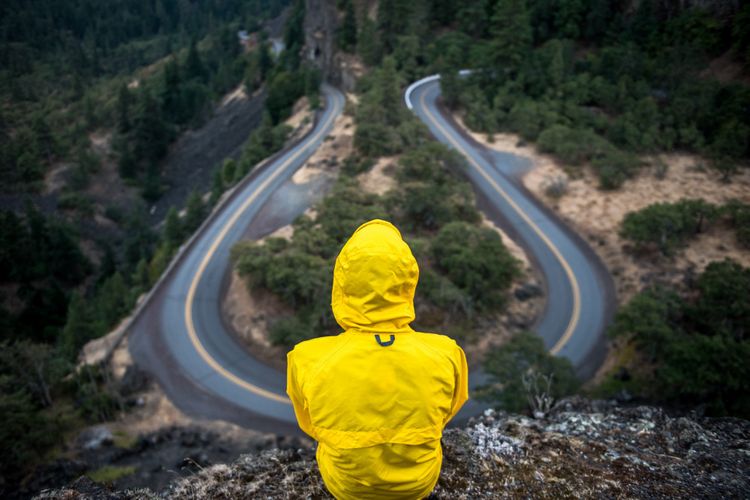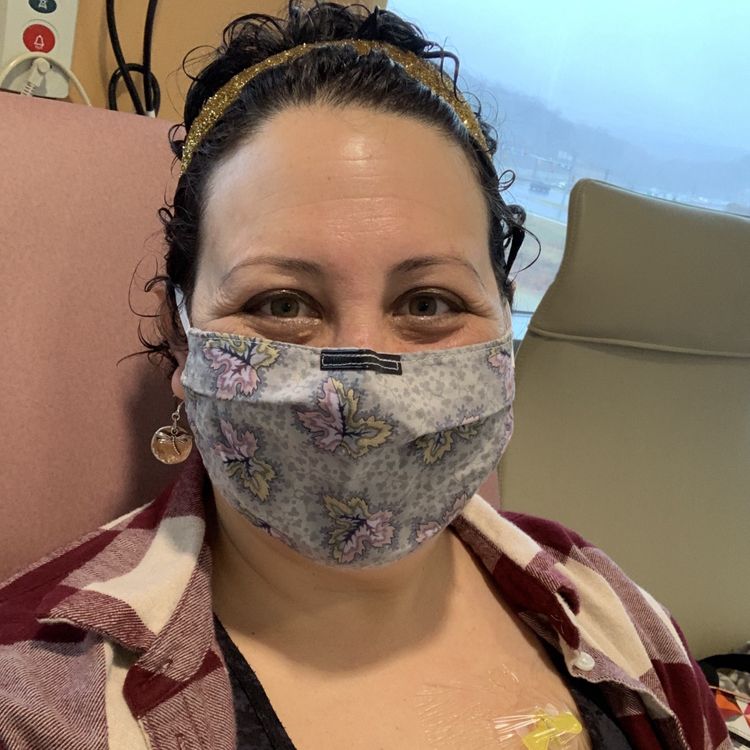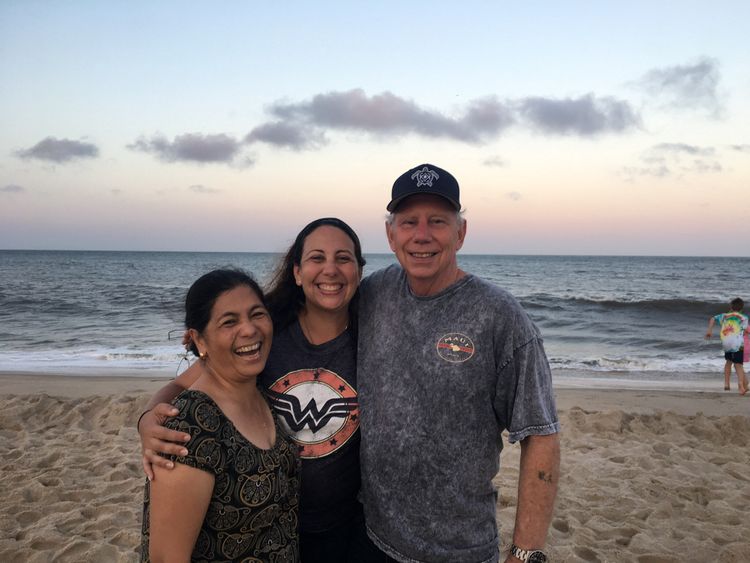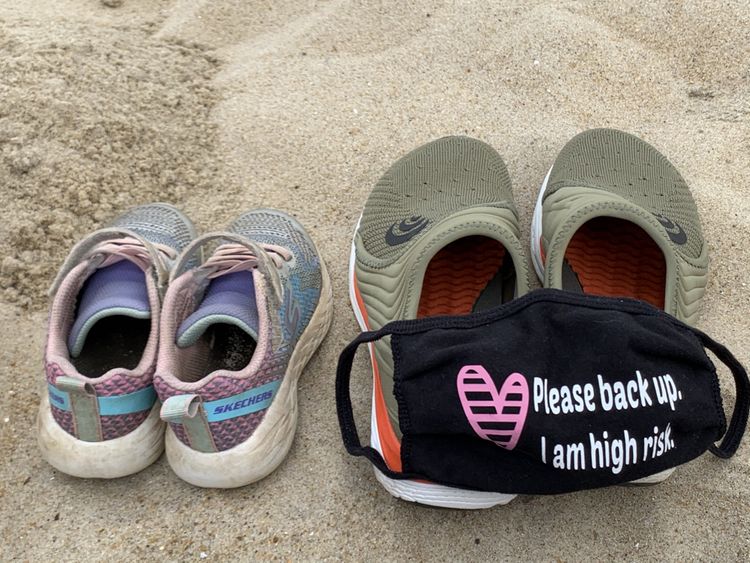The Hate U Give
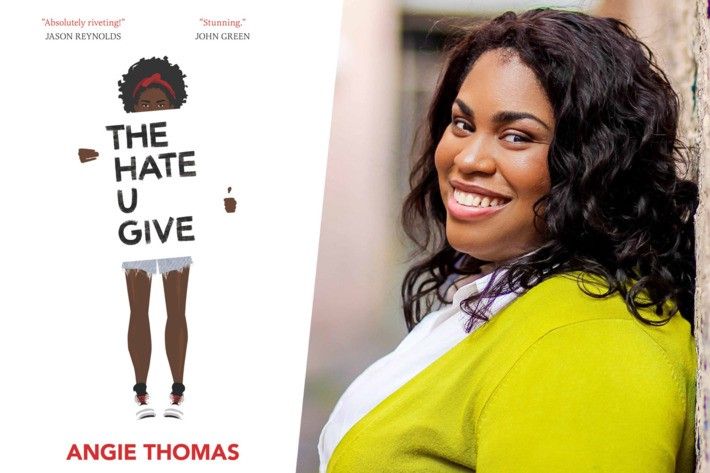
And the lessons it’s teaching me

The Hate U Give is a powerful young adult novel by Angie Thomas. In the current climate, Thomas’ story provides a powerful backdrop to what we are dealing with in the U.S. as related to race relations, police brutality, and the importance of accountability.
The Hate U Give centers around 16 year old Starr Carter and her experience watching her best friend, Khalil, die at the hands of a police officer during a traffic stop. Through her eyes we watch the events that surround Khalil’s death. We empathize with Starr and we see her friend as more than a hashtag and more than the mistakes he made. Thomas does an excellent job of showing the character as a whole person through the lens of humanity versus what we view coming through our personal newsfeed.
Sixteen year old high schooler, Starr Carter lives with one foot in two worlds: one in where drugs, gangs, and gun shots are part of her everyday and the other where her friends live in a world of privilege. Through this book we see Starr wrestle with her identity. Is she the Garden Heights Starr who lives and interacts with family and friends in a predominantly Black neighborhood or the Williamson Starr who attends a predominantly wealthy white school and learns to teach her friends Chris, Maya, and Hailey about racism and social justice? We watch Starr find her way and her voice when she decides to speak out against the wrongful death of her friend Khalil against someone who’s professional motto is to protect and serve — a police officer.
Through her characters Angie Thomas provides some powerful quotes throughout her book. They are timely as we experience racial strife and disregard for human dignity in real time through the wrongful deaths of George Floyd, Elijah McClain, Ahmaud Arbery, and Breonna Taylor. Their deaths are not the first, but until we there is accountability throughout law enforcement, they will not be the last.
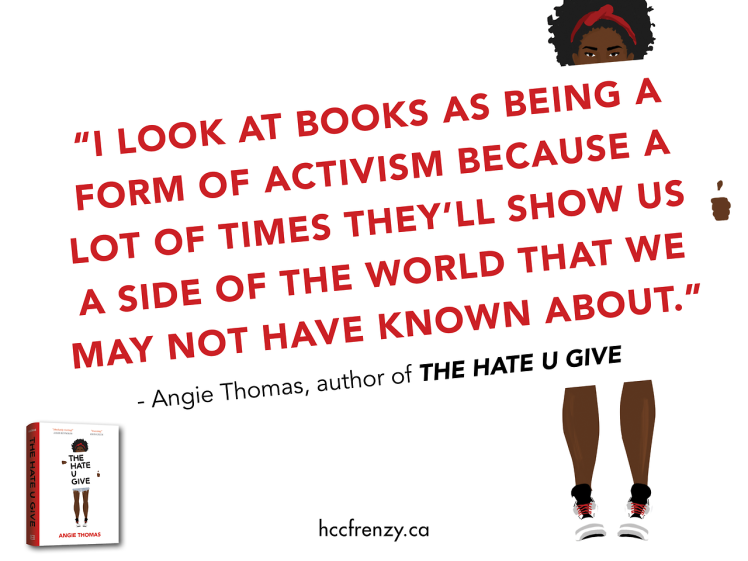
The following quotes from The Hate U Give provide lessons and insights to racism, police brutality, and social justice. I share just a sampling of the quotes and lessons that resonated with me. I’m still learning and I’m still listening. Thank you Angie Thomas for giving me perspective and a better understanding of what I did not know.
That’s the hate they’re giving us, baby, a system designed against us. That’s Thug Life.” — Maverick Carter
Maverick Carter explains the definition of late rapper Tupac Shakur’s “Thug Life” to his daughter Starr. He shares how the lack of opportunities, the lack of educational resources, and drugs have destroyed their community. The hate given by the those who should be helping turns into an endless cycle of destruction and poverty. Without the same resources and opportunities afforded to the oppressed, drugs will continue to be a source of income, destruction, and poverty.
That’s why people are speaking out, huh? Because it won’t change if we don’t say something.” — Starr Carter
Everybody’s pissed ’cause One-Fifteen hasn’t been charged…but also because he’s not the first one to do something like this and get away with it…it’s been happening and people will keep rioting until it changes. So I guess the system’s still giving hate, and everybody’s still getting fucked. — Starr Carter
These two quotes share the same sentiment. Starr goes back and forth about speaking up for her friend Khalil and the consequences that go along with demanding accountability for law enforcement after what she saw the night her friend was killed in front of her. Starr thought that if she ever saw police brutality in person, that she would be the first to show up. But when placed in that position she was scared about what would happen to her and her family if she spoke up. With the help of her father, her attorney, and her friend Kenya, Starr begins to understand why it’s so important for her to use her voice. Her attorney April Ofrah tells her that her voice becomes a weapon against police brutality. If no one speaks up, it will keep happening over and over again.
This helps to explain why why people are so angry when the videos of George Floyd and Elijah McClain have come to light. Let’s face it, their situations are not a one off. Unless we speak out against it, there will be little accountability for a system that is supposed to protect all of us. We must use our voices to say something. We must use our words. Sometimes our silence says too much.
Daddy once told me there’s a rage passed down to every black man from his ancestors, born the moment they couldn’t stop the slave masters from hurting their families. Daddy also said there’s nothing more dangerous than when that rage is activated. — Starr Carter
This is reference to a scene where Starr’s father, Maverick Carter, is forced to get on his stomach by police officers. The officers come because they see an argument between Maverick and a fellow business owner. They use that opportunity to bully and humiliate Maverick. There was no cause for it. Maverick followed their orders to give him his identification, and while there was no threat, no weapon, and no provocation, they forced him to get on his stomach and search him repeatedly to show their power. End of story. Who wouldn’t carry anger from constant forced humiliation? This is not a situation that only happens in stories. This is happening in everyday real life.
That’s the problem. We let people say stuff, and they say it so much that it becomes okay to them and normal for us.What’s the point of having a voice if you’re gonna be silent in those moments you shouldn’t be? — Starr Carter
This is a big one. Starr reminds the readers that we become complicit when we let remarks slide without challenging them. We let it become the norm and when it is no one thinks twice about their words. Starr finds herself in an uncomfortable position as she realizes one of her best friends is making racist remarks disguised as jokes and that she needs to speak up. Words are power and Starr reminds us that we need to stop microaggressions and racist remarks as they are happening.
He [Khalil] was more than any bad decision he made…I hate that I let myself fall into that mind-set of trying to rationalize his death. — Uncle Carlos
Starr’s Uncle Carlos is a detective who grew up in Garden Heights. He moved his wife, children, and mother away from the gangs, drugs, and gun violence. He reveals to Starr that he allowed himself to justify Khalil’s death by thinking of only the worst parts of him. He forgets the humanity behind Khalil’s story. He reminds Starr and the readers that people are more than their bad decisions. Sometimes all we see in the news is a person only characterized by his bad decisions. We need to shift the perspective of that narrative.
White people do stupid shit sometimes — Jess
Jess is a white student at Starr’s school. This is her response to when the students plan a walk out to protest Khalil’s death and the students capitalize on his death to get out of class. Other students are looking to be allies against racism and aren’t quite sure how to do it other than walking out with the other protesting students. One thing that none of the students did was to amplify the Black voices in their school community.
I feel Jess’ quote. Because in my quest to do what’s right, I jump in without forethought. My job is to listen, learn, and amplify Black voices. My job is provide support; not take over. Sometimes in our passion we think we are helping, but we end up drowning out the voices that need to be heard. I have to remember to take myself out of the narrative and listen to what is being taught by those on the front lines of social justice.
It’s not lost on me that I am perceived as a white woman sharing my thoughts on these quotes. I am biracial…otherwise affectionately called Hapa Hapa by my Filipina mother. But by sharing the quotes, I hope that I am doing justice to this book by amplifying Angie Thomas’ voice as she shares the stories from her “concrete garden.”
Are you serious right now?…What’s wrong with saying his [police officer 115] life matters too? — Hailey
His life always matters more!…That’s the problem! — Starr Carter
The conversation between Starr and her former best friend Hailey is one that keeps popping up as discussions of whose lives matter. Starr points out that other lives have always mattered and no one seemed to notice until the cry was “Black Lives Matter.” And until Black Lives Matter, then it’s not true that all lives matter. Right? When we don’t provide dignity and respect to those most marginalized and unprotected, can we truly say that all lives matter? We are called to view each other in the likeness of God and when we don’t, then we don’t truly mean that All Lives Matter, because we’re leaving out a large portion of the population.
Sometimes you can do everything right and things will still go wrong. The key is to never stop doing right. — Lisa Carter
As a mother, I one hundred percent agree with Starr’s mother, Lisa Carter. As a parent, I try to do everything right and I make mistakes. Lisa reminds Starr that doing right is not always easy. It can take you out of your comfort zone.
I believe we are called to serve one another and we do so by standing up and speaking about unjust practices and calling for accountability. Just keep moving forward, keeping lending your support, keep amplifying the voices that need to be heard.
It’s also about Oscar.
Aiyana.
Trayvon.
Rekia.
Michael.
Eric.
Tamir.
John.
Ezell.
Sandra.
Freddie.
Alton.
Philando.
It’s even about that little boy in 1955 who nobody recognized at first Emmett — Angie Thomas, author
Author Angie Thomas reminds us who Khalil represents in her story. The murders of Ahmaud Arbery, George Floyd, Breonna Taylor, and Elijah McClain are not the first of their kind. Their names are added to a growing list. Even as I write, more stories are flooding my social media feed. Unfortunately, systematic racism and injustice is an old story. I hope through understanding, empathy, and a fight for accountability and justice, that we will see an end to systematic racism.
What kind of legacy do we want to leave behind? What kind of legacy do I want to leave for my children?
As an educator and mother, I recommend reading The Hate U Give by Angie Thomas. If you think that racism doesn’t exist, read her words. View the situations with a different lens. Give yourself a new perspective. While Garden Heights might be a work of fiction, the situations are not. They are a parallel to what we are seeing in our country right now with the protests, with the riots, and for the demand for accountability.
This book is for young adult readers and above. There are references to sex, drugs, and death so use your best judgement before sharing it with younger children. But this is a book that I am encouraging my teenagers to read so that we can have an open and frank discussion about racism and the parallels that we see in our state and country right now. My son says that they have covered racism in class discussions. But I think reading a narrative geared for his age group will be more powerful than just discussing what is seen on our screens. Thomas provides a unique perspective and lens to the story. The perspective is raw and vulnerable. Take a read and share with me what you think of the book.
